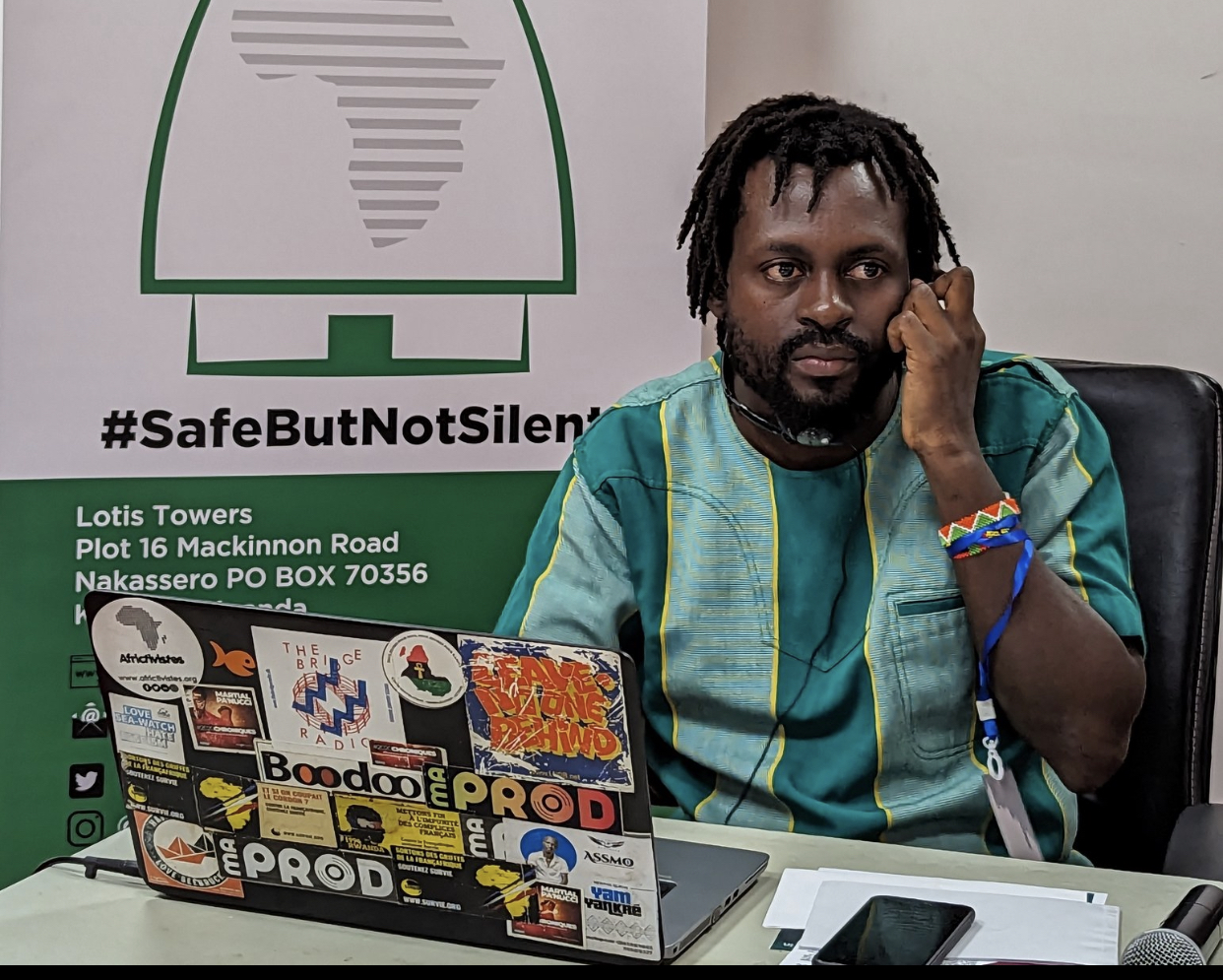Martial Pa’nucci is a child of what is fondly known as Africa’s second liberation. In 1990 when he was born, the Republic of Congo, like many other countries in Sub-Saharan Africa, was undergoing a transition from one-party rule to multi-party democracy, following the collapse of the Soviet Union.
Yet developments in ordinary people’s lives were not as optimistic. Pa’nucci was born in one of Brazzaville’s ghettos to a polygamous family of two mothers and 19 siblings, where survival was a daily exercise in courage. When he was two, his father died, followed in quick succession by many of his siblings. Pa’nucci did not start school until he was nine, and he had to do odd jobs – from barbering to plumbing to earn his stay there, lest he dropped out like many of his peers.
These circumstances were his first illumination to the gross inequality around him, which eventually stirred his human rights consciousness. A gifted vocalist and wordsmith, by the time he was done with Primary school, Pa’nucci had started composing amateurish hip-hop music, slowly nurturing a talent that would become a defining part of his public identity. But Music was not just that for him. It was an act of resistance, he says:
“Music was my way of trying to reclaim who I was – a refusal to be defined by my circumstances and their limitations. So, I started singing about my people in a way that extolled our unique attributes and endowments. So, music was my way of restoring my and my people’s agency in defining who we were,” he says.
Martial Pa'nucci Tweet
His dogged determination paid off, and in 2010, he was admitted to the Marien Ngouabi University to study Literature and African Civilization, the first in his entire family to do so. But by that time, Pa’nucci had grown increasingly impatient with the status quo, and had, through his music, become an outspoken activist for social and political reform.
“There are certain realities that were truly infuriating. For my entire primary school for example, we were sitting in dust or on grass, with no seats. Very many children in Congo still undergo that reality. So, I started asking; why do generations of Congolese children continue to study in dust when there are trees all around us, when Congo is part of the equatorial rain forest region? These issues were concerning me, and naturally, they found their way into my music,” he says.
It was this revitalized activism at university that registered him on the radar of Congo’s security apparatus. Soon, he was increasingly blocked from performing at events, and he started receiving warnings from anonymous numbers to back off his activism.
But rather than dissuade him, the warnings served to reinforce Pa’nucci’s resolve. In 2014, together with a group of youth activists formed Ras-le-bol (translated as “I have Heard Enough”), a citizens’ movement to sensitize and conscientize young people about the social, economic and political issues pertaining the country ahead of the 2014 elections.
When the Republic of Congo’s long-ruling President Dennis Sassou Ngueso amended the country’s constitution to run for another term in a 2015 referendum widely rejected as a sham, Pa’nucci and his Ras-Le-Bol colleagues intensified their citizens’ sensitization campaign, intensifying collision with the government authorities. After President Ngueso was returned to power following elections in early 2016, the Congolese police turned their guns on Pa’nucci and his other colleagues who had given them much trouble in the lead up to elections.
“They started trailing us and intimidating our family members to reveal our whereabouts. So, we would change out of several taxis on a single journey, and sleep at different locations because the police was looking for us in all our known addresses,” he says.
Martial Pa'nucci Tweet
By July 2016, it had become evident that Pa’nucci could no longer safely stay in Congo. He escaped to Senegal, and later to Burkina Faso, where he sought and gained asylum. With a new lease of freedom, Pa’nucci continued to perform and release music, confronting several issues, from France’s continued neo-colonial hold on its former colonies, to deriding long-staying authoritarian presidencies in Africa.
In 2020, while enroute to perform at a University Students’ Gala in Senegal, he was arrested on arrival at the airport in Dakar. Months earlier, he had released a new album – “#2020Chronicles – Chronicles of decolonization,” in which he derided several African Presidents, including Senegal’s Macky Sall for their oppressive and authoritarian streak. After recording a video of his detention and sharing it on Facebook, he was eventually released and deported back to Burkina Faso.
Pa’nucci insists he will not be cowed, but his resolve has come at great cost to himself and his family, for which he was the main breadwinner. At the time of his exile, he had started his PhD studies in Congo, which he had to abandon. For seven years since he left for exile, he has not been able to see his mother or the rest of his extended family. His brother, the last-remaining sibling from his mother’s nine children died early this year, and Pa’nucci could not go to bury him. I asked him, what keeps him going despite the immense personal sacrifice:
“We cannot all just keep quiet, and surrender. We must remember that the peace we enjoy today wherever we may be, was struggled for, which means we also have a generational responsibility to ensure that we leave a freer world for those who come after us,” he says.
Martial Pa'nucci Tweet

